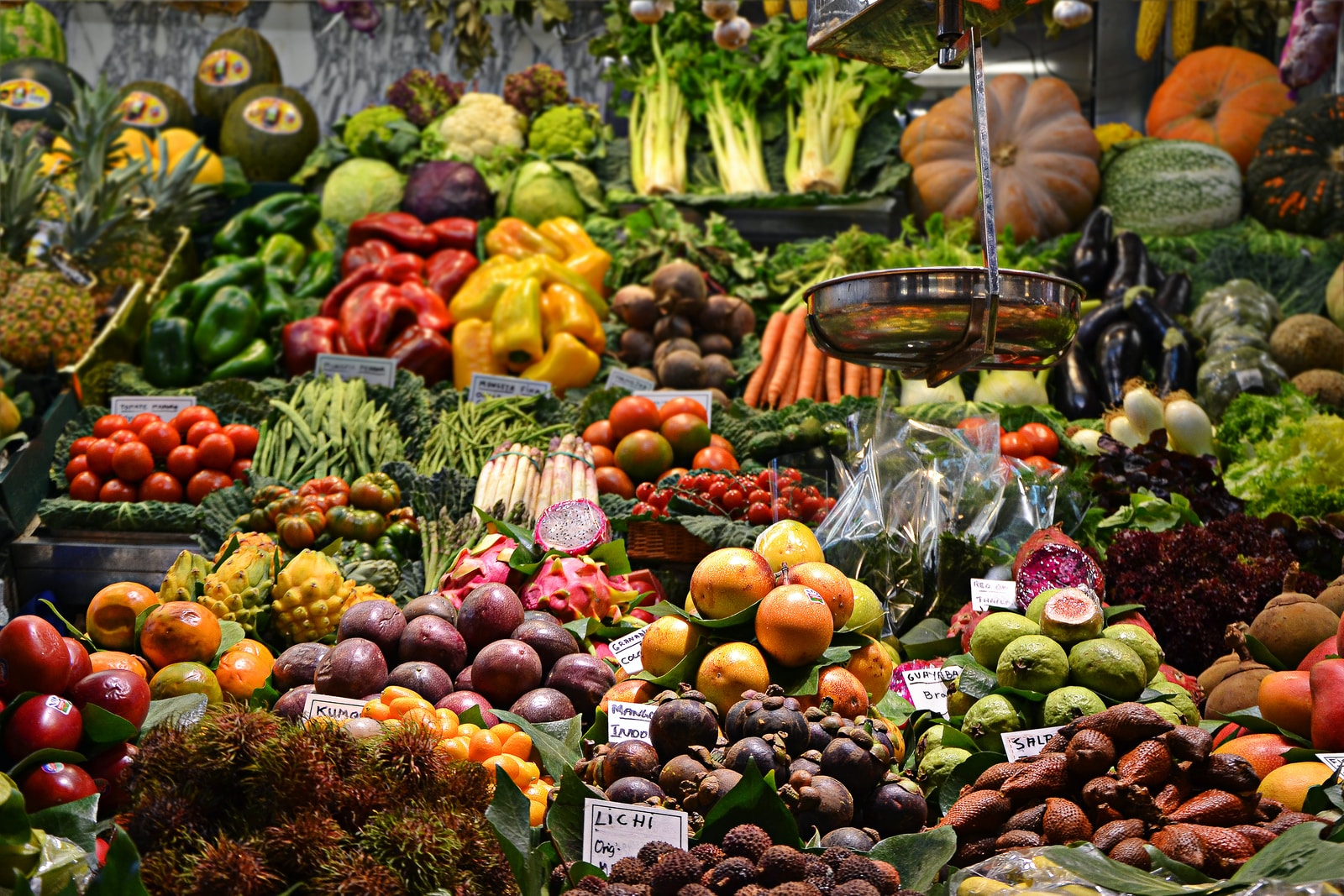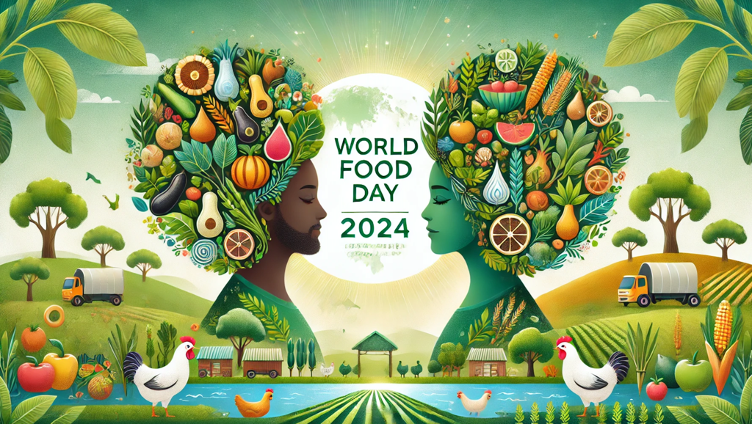World Food Day 2024 - Right to Foods for a better Life and a Better Future
Today, October 16, 2024 Food First joins the global community in reflecting on the importance of World Food Day 2024. We stand in solidarity with this year’s theme “Right to Foods for a Better Life and a Better Future”. Importantly, “right to foods”, represents food that is culturally appropriate and diverse nutritious, affordable, accessible and safe.

World Food Day is an opportunity to acknowledge all that has been achieved in working to one day have a world where everyone is food secure. However, today is also a time to rededicate ourselves to addressing and overcoming the challenges that continue to undermine global efforts to eradicate hunger, food insecurity, and malnutrition. This day serves as a crucial reminder of our shared responsibility to dedicate ourselves to work together to achieve each of the Sustainable Development Goals (SDGs) that we, the global community, pledged to achieve particularly in relation to the right to food, access to clean water, and the urgent impacts of climate change on our food systems.

Despite ongoing global efforts, hunger continues to be a significant challenge affecting millions of people worldwide. A considerable portion of the global population still faces food insecurity, which is exacerbated by a lack of access to clean water. Like many around the world, all of us at Food First believe water, like sufficient nutritious food, clean air, and secure shelter, should be a fundamental human right. Because millions of individuals globally are deprived of safe drinking water and adequate sanitation, these challenges lead to poor health outcomes and further complicate the fight against hunger. Water scarcity also poses serious challenges to agricultural productivity, leading to increased food prices and heightened food insecurity.

When we think about the barriers to achieving a world without hunger, we must also consider the impact of all of the harm inflicted on our planet from the use of poisonous toxins and pesticides and the destructive land use practices including poor waste management. Climate change continues to be a major global threat, exacerbating water scarcity and increasing the frequency and severity of extreme weather events worldwide.
From devastating floods to prolonged droughts, the impacts of climate change are disrupting agricultural production and threatening food security in many regions. Unpredictable rainfall patterns are leading to crop failures, affecting farmers and communities reliant on stable food sources. These environmental challenges disproportionately impact vulnerable populations, deepening existing inequalities and perpetuating cycles of poverty and malnutrition.
As we navigate these complex issues, let’s commit to work together with a common goal of making food a human right in a world where food justice and food sovereignty is a reality. To make this a reality we must, as the sustainable development goals illustrate, use a multifaceted approach that considers the changes required throughout the entire food continuum. From farming and food production to living wages for those who work to grow and process our food, to community level food access and affordability including more effective waste management processes.
Geopolitical tensions also play an important factor in food access and affordability by disrupting food supplies and driving up prices. Ongoing conflicts and political instability in various parts of the world have impeded food exports and contributed to rising global hunger rates. As food costs soar, millions of people are at risk of being pushed deeper into hunger and poverty.
In this complex landscape, the importance of decentralized and locally controlled food systems is greater than ever. By encouraging food production closer to where it is consumed, we can bolster community resilience against market fluctuations and supply chain disruptions. Supporting local independent small landholding farmers, particularly BIPOC and other marginalized groups, investing is essential for cultivating equitable and sustainable food systems that nourish everyone.
World Food Day is a clarion call to action for governments, organizations, and individuals. The solutions to hunger are within our reach, but they require concerted political and financial commitment. We must support small-scale farmers, recommit to utilizing regenerative and sustainable farming methods, implement sustainable water management practices, and accelerate the transition to renewable energy.
At Food First, we remain committed to being active and vocal champions in the global struggle against hunger and food insecurity. Our mission focuses on partnering with marginalized communities, including BIPOC populations, smallholder farmers, and indigenous groups, in our pursuit of solutions that lead to more just and responsive food systems that commits to “feeding all of us” over making profits from prioritizing the allocation of food to “some of us”. We are committed to support efforts that enable local communities to achieve food sovereignty, water equity, and climate justice and to support the empowerment of those most at risk of hunger and food insecurity. In short, we believe food liberation requires systemic change!
This World Food Day, we stand in solidarity with the Food and Agriculture Organization (FAO) of the United Nations to highlight the importance of safeguarding natural resources and advocating for zero hunger globally. Our research, education, and advocacy efforts are dedicated to reforming policies, uplifting community-driven solutions, addressing inequalities, and affirming food as a fundamental right for all.
As we celebrate World Food Day 2024, we invite global citizens to take meaningful action. Ending hunger goes beyond food distribution; it requires us to redefine food as a fundamental right rather than a commodity available only to those with wealth. Let us unite in our commitment to make healthy, nutritious food an equitable resource accessible to everyone. Together, we can forge a path toward a future free from hunger, where all individuals have the opportunity to thrive.
Here are some useful links to access more resources related to World Food Day.

Links
- UN World Food Day: https://www.fao.org/world-food-day/en/
- United Nations Sustainable Development Goals: https://sdgs.un.org/goals
- United Nations World Food Program: https://www.wfp.org/
- United Nations Food Waste Challenge: https://www.fao.org/interactive/food-loss-waste-challenge/en/
- Stats on the Global Food Crisis: https://www.wfp.org/global-hunger-crisis
